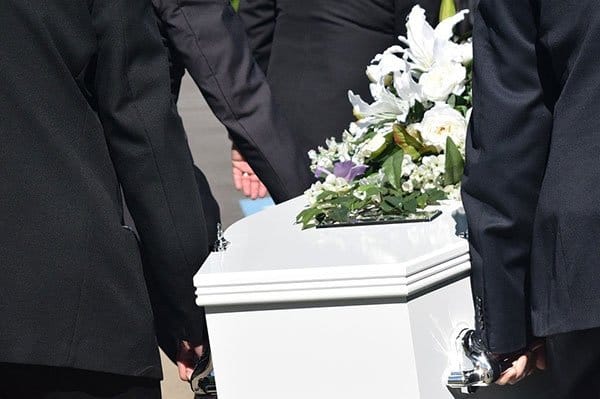There are few certainties in life, except life itself, and that one day this will end. Throughout our life, we will experience many funerals. Despite this, no one becomes an expert at organising or attending an event that marks the loss of someone close to you.
It can be tempting to avoid the funeral. Nobody wants to experience intense emotions or face loss head-on. However, there are reasons we go through such rituals. The team, at Ashes Memorial Jewellery have put together a guide to help people know all they need to about the funeral process.
Why Do We Have Funerals?
There are lots of reasons why we choose to have a funeral. The ultimate aim is practical, as something must be done with the body. It would seem insensitive to dispose of this body as if there was little meaning to life.
You may argue that the person has gone and has no idea that the funeral has occurred. Most of the meaning in the burial is indeed for the living. In many respects, we are reassured that we are treated well when we die and not just discarded carelessly. It is about respect.
However, there are more pertinent benefits of the funeral. It is a means of paying tribute to a person’s life. This, in turn, helps us to acknowledge, if not yet accept, that this life has come to an end. It is a marker that tells us it is time to start mourning. Without the funeral, it would be easy to fall foul of magical thinking, to assume it was all a mistake, and the person did not die. The reality of death is evident in the box and the service that focuses on saying goodbye.
Going to the funeral will also bring you together with friends and family who are also mourning the loss. It is comforting to be with others who feel similar levels of pain and understand the sense of loss. This congregation of people will allow everyone to be open about feelings and to express these.
What Happens At A Funeral?
There are lots of traditions and beliefs that mean one funeral may be different from the next. Your religion will have a significant impact on the timing and the service. If you are not religious, this too will impact on the way the service will be conducted.
The ceremony will take place in a church, a chapel or a crematorium, or other religious building. When arriving, you will likely be ushered in to take your seat before the family, and the coffin arrive. Some services require you to enter behind the family. The front rows of the service are for the family. If you are not close to the person, then you should sit towards the back.
The choice of who leads the service depends on your religion. It may be a celebrant or humanist, or it could be a minister of your faith. You will likely be presented with an order of ceremonies when you arrive. This pamphlet will let you know what is going to happen, who will speak, and the hymns that will be sung. It will also let you know where you can join the family for drinks and food after the ceremony.
There is such a lot of choice of what can happen at this ceremony that it will be individual to the family involved.
Be aware; the coffin may be on view throughout or shielded behind a curtain. In a crematorium, part of the ceremony is to remove the casket from view. You will not see the process of cremation. At a burial, the mourners will move to the graveside behind the coffin. There will be more words by the grave, and the casket will be lowered into the ground. Many burials include the dropping of earth, flowers or other objects onto the grave. Sometimes, only the immediate family proceed to the graveside.
Showing emotions at a funeral is to be expected but is not necessary. You will react-how-you-react. You should take some tissues just in case.
Do You Have To Have A Funeral?
No law demands you must have a funeral. The law states that you must “dispose of the body of the person who has died by burial, cremation or other means.” You can choose to have the burial outside the formal structures of a church or crematorium.
This means your choices are:
- A traditional funeral, either a crematorium or burial
- Direct cremation, where the body is disposed of without a service. A funeral director can arrange this, and the ashes can be delivered directly to the family.
- Natural Burial – here the family organise for the burial to take place in a natural place or woodland burial site. This means that all the details of the funeral are entirely at the discretion of the family.
- DIY funeral – there is no legal requirement to hire a funeral director. You can arrange all the details yourself, from collecting the body from mortuary, transporting them to the burial and more. Most professionals in the arena of funerals will want you to have a funeral director, but it is not necessary.
How Long After A Death Is A Funeral?
Some religions require the burial to happen very quickly after death, out of respect to the person. However, the average time between death and a funeral is two weeks. If there is an inquest into the death, the funeral may be delayed because the body may not be released.
How Much Does A Funeral Cost?
Much depends on your choices when planning the funeral. However, the average cost for burial is close to £5000 and for cremation is £4000. There are lots of details that will affect the price of the funeral, including:
- the location
- the type of coffin
- the choice of transport
- the flowers
- the catering
The most significant proportion of costs will likely be the coffin.
You will also need to consider the cost of the funeral director, the doctor’s fees, the celebrant or service leader, the burial or cremation fees, the headstone, and the fees for other administration costs. By hiring a funeral director, you will get help with the collection and care of the deceased, as well as additional professional guidance.
Who Pays For A Funeral If There Is No Money?
If there is no money in the person’s estate, then family and friends are expected to cover the cost of the funeral. If this is not an option, then you will need to explore how to fund the funeral.
Options include:
- The funeral director may take payment by instalments
- There may be charities who would be willing to help with the expenses
- You may also qualify for a Funeral Expenses Payment. If you are claiming benefits, you are entitled to this Funeral Expenses Payment. Here the government gives money towards the funeral costs, though you should apply within six months of the funeral. To qualify, you need to be a close family member such as a sibling, parent or dependent.
- Bereavement support payments can also be claimed if your husband, wife or civil partner has died and either you or the deceased has made NI contributions for at least 25 weeks and if they died because of an accident or disease caused by work. They will need to be under State Pension age and living in the UK.
What Do You Wear To A Funeral?
It may be that the family gives some direction about the dress code. Some people feel it is appropriate to wear bright colours to celebrate the life of the person. If the person is young, then something more colourful may feel necessary.
However, if there is no mention of dress-code from the family, then you need to assume that it is going to be formal and you should wear dark colours. You are unlikely to be expected to wear dress clothes for most funerals, just smart clothes in darker tones.
For women, it is appropriate to wear dark dresses or suits. You should, however, keep your shoulders covered. Avoid bright sundresses and do not reveal too much. The ideal options are a skirt or pantsuit or a dress. However, it is also fine to wear a skirt and blouse or sweater.
For men, you will likely wear a dark suit or a buttoned-up shirt. Your shirt should be tucked in, and you should wear dress shoes.
Both genders need to avoid athletic shoes and flipflops, and it is not appropriate to wear jeans.
How Do You Find Out When A Funeral Is?
It is usual for the family to place a funeral notice in the local newspaper. This informs others of the death, as well as giving details of arrangements. It does not have to be a local newspaper; you can publish this notice online and can be this is considered just as respectful. Therefore, if you are trying to find out when a funeral is, you may want to try the internet first.
What Do You Say Someone Who Is Attending A Funeral?
Fearing that you are going to be struck dumb or say the wrong thing could make you dread the day of the funeral. However, if you are looking for some prompts, then some possible phrases could be:
- I am so sorry. Your mother/ father/ uncle… was loved by many
- He was a wonderful person and talented at…..
- Please know that you are all in my prayers
- I have such good memories of…. she will be missed.
- When you feel ready, please call me if you need to
Do not be afraid to talk about the deceased. The point of such a day is to share memories and feelings of loss.
Summary
It is never easy to attend a funeral. However, it is essential to the healing that will begin soon. It is a formal ritual that helps us make the passing of a loved one real. We can say goodbye to them and show our respect and love. It does not have to be something elaborate to be special. The point is to respect the life of the person lost and to offer some celebration for life lived. If you would like to memorialise a loved one, then get in touch to learn more about how we can turn ashes to jewellery.






